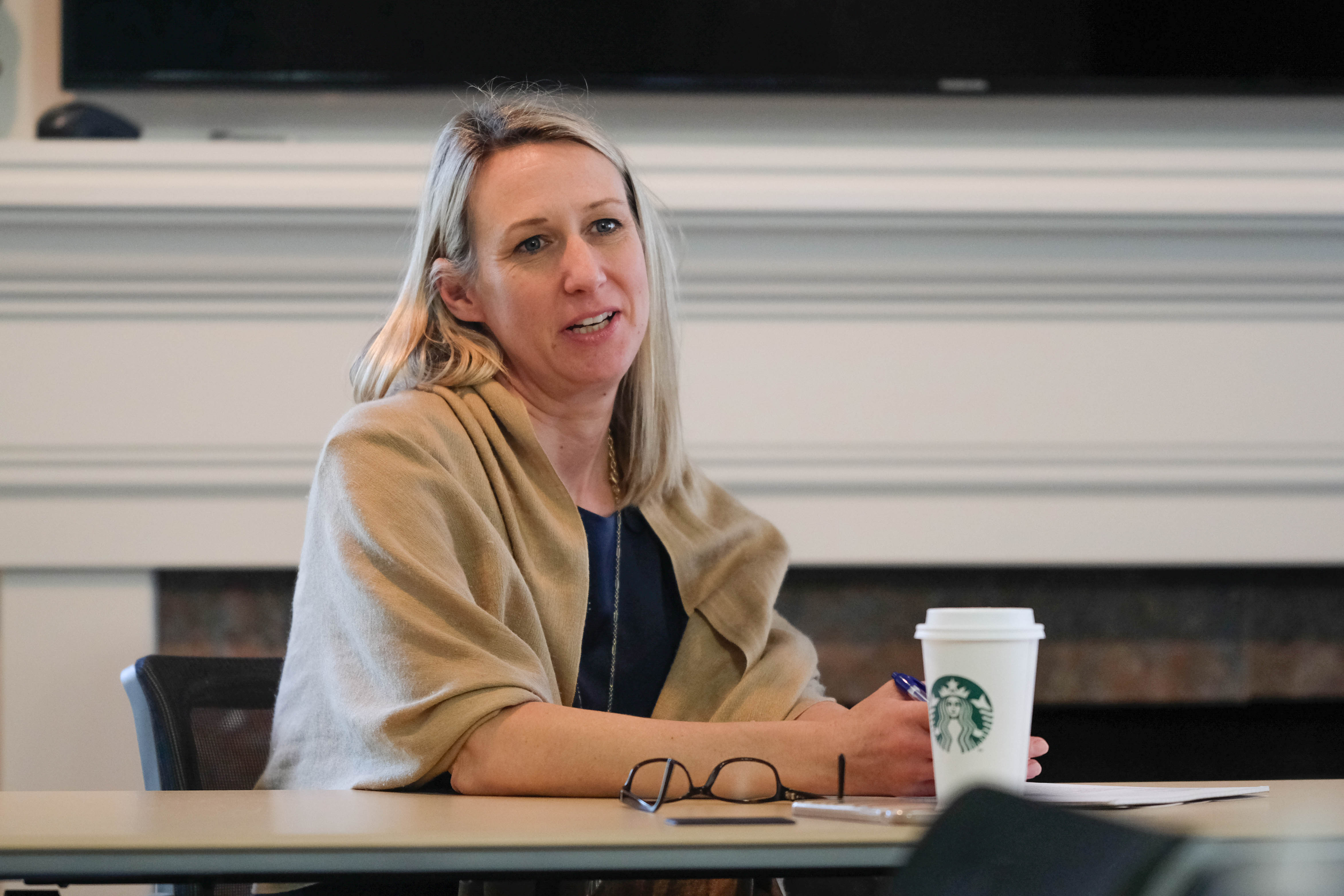The Center for Excellence in Teaching and Learning held a panel of three distinguished educators who discussed discomfort in the classroom at Kennesaw State’s CETL House on Feb. 8.
Dr. Nichole Guillory, a professor of curriculum and instruction, Dr. Tim Hedeen, a professor of conflict management, and Dr. Esther Jordan, the associate director for faculty support and associate professor of political science, explored how we employ, avoid or confront discomfort in the college classroom.
The topics discussed during this event included teaching from a “pedagogy of discomfort,” student and instructor discomfort, the didactic benefits of making students comfortable and diversity and inclusion in the classroom.

The panelists shared stories of trial and error during their earliest days of lecturing at the collegiate level, stories of their own discomfort taking center stage in front of students and their failed attempts at engaging students.
Guillory provided some proven pedagogical strategies or methods of teaching that have worked for her after years of revision and refinement. She had given the audience handouts developed by Parker J. Palmer and the Center for Courage and Renewal on the Circle of Trust.

Initially, Guillory believed words of affirmation were the keys to success in the classroom until she learned from Palmer that there was to be no fixing, saving, advising or correcting in academics. Guillory said students should be allowed to present their ideas as fully as possible if they so choose. Guillory added that, as teachers, the objective is to teach, and cooperation should be offered as an invitation, not a demand.
Hedeen shared that he had enrolled in a few improvisation acting classes at Dad’s Garage to strengthen his agility when de-escalating tension and disruption in his classroom. He added that he had learned to say, “yes, and …” as opposed to “yes, but …” to build on a conversation whilst not offending or discrediting anyone else’s prior statement.
All three panelists teach potentially sensitive subject matter, and they often engage in difficult and emotionally charged content. They took notice to emphasize the importance of creating a trustworthy environment for students to express themselves.
Jordan admitted that she had made a few rookie mistakes in the past. She confessed that she had not always fostered a sense of community in the classroom and instead dove head-first into reading the textbook.
The professors spoke on the value of vulnerability, removing themselves as an authority figure in their classrooms and how having mutual respect impacts students’ ability to connect with not only them but each other. The panelists emphasized that discomfort in the classroom is essential for learning and growth.


